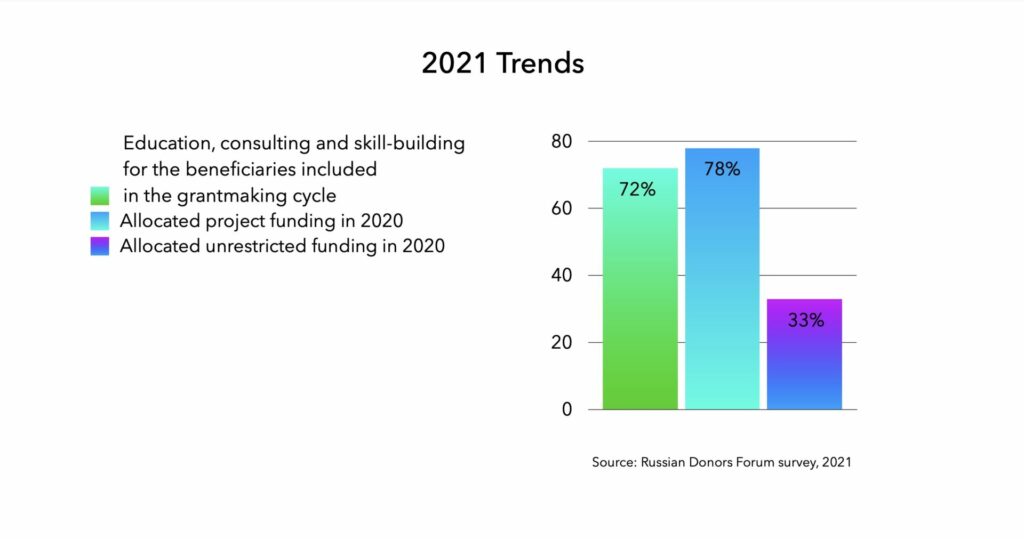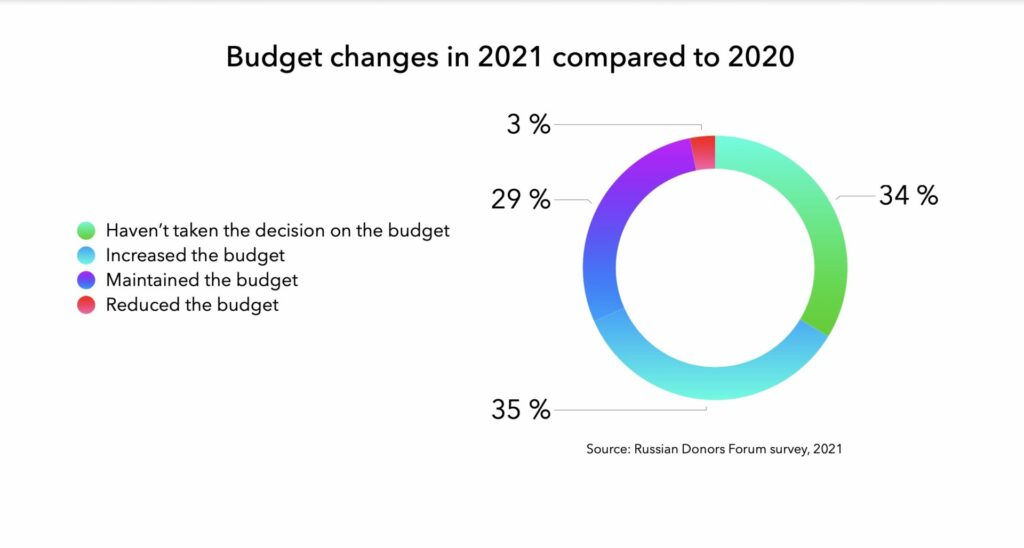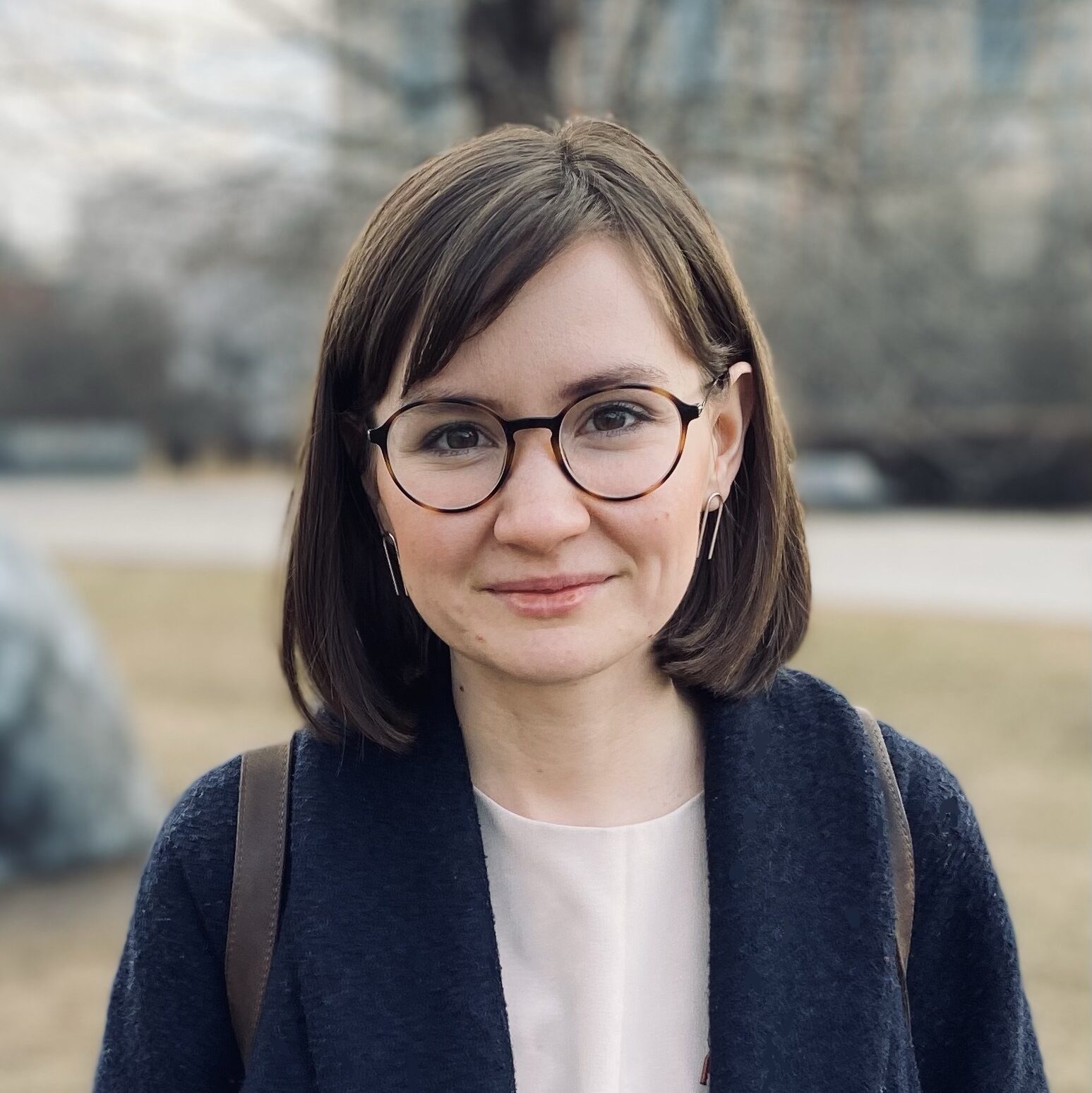Grantmaking trends in Russia in the times of COVID-19: unrestricted funding has potential, but organisational maturity still needs to be developed
Russian philanthropic organisations, both private and corporate funders, consider grantmaking as the go-to tool to ensure unbiased identification of “hidden gems” in the communities which allows the strengthening of local leadership. They have also embraced unrestricted funding to support non-profit organisations, although they find that long-term planning and strategic management still need to be cultivated among Russian NGOs.
By Alina Shenfeldt, International Cooperation Lead at Russian Donors Forum

Russian philanthropic landscape is quite distinctive from Western philanthropies – alongside traditional foundations, both private and corporate, the sector is heavily dominated by the Presidential Grant Foundation[1], a centrally administered foundation which allocates government funding to thousands of Russian charities. According to a recent survey of 500 Russian charities conducted by CAF Russia and “VSE Vmeste” (All Together), an association of charities in Russia, 68% of Russian charities received funding from the Presidential Grant Foundation, 52% from private foundations and 18% from corporate funders[2].
Private and family foundations, along with responsible business and corporate foundations in Russia tend to carry out their philanthropy by operating their own programmes, but grantmaking mechanisms are very widespread as well. In the survey of almost 40 of the biggest Russian grantmaking organisations conducted by the Russian Donors Forum in April 2021, some very visible trends came out: the majority of the respondents have either increased or maintained their grantmaking budget for 2021; they see grantmaking not only as a means to distribute funds but also to develop local capacity building; they allocate non-restricted funding but consider that the maturity of the non-profit sector still needs to be developed.
Budgets on the rise or on the same level, but exorbitant requirements persist

Although a third of the organisations haven’t taken the decision on the budget for 2021 at the moment of the survey, the majority of organisations have either increased (34%) or maintained (28%) their grantmaking budget, with only 3% having reduced it. Another trend relates to an increased level of flexibility around reporting and payment introduced during COVID-19, which has been the case for 55% of respondents.
Regardless of this, Russian charities seem to be experiencing a heavy financial and administrative burden to meet donor requirements: almost half of charities lament allocating excessive resources for grant administration and reporting, according to the recent findings of CAF Russia and “VSE Vmeste” Association. They also find it challenging to meet the criteria of co-sponsored funding from other financial sources, which is quite often required by funders.
Grantmaking as a vehicle for community development
Many Russian funders do not consider grantmaking as only a way to identify and support projects aimed at addressing social challenges. Grantmaking is a vehicle to create a thriving ecosystem for community development – according to the survey, 70% of Russian grantmakers include education, consulting and skill-building for the beneficiaries in their grantmaking cycle.
As a result, beneficiaries form communities of practice and develop local infrastructure, which is especially instrumental in the areas where there is still a dearth of resource centres for NGOs. SIBUR Foundation “Formula for Good Deeds” highlight that many local social entrepreneurs are their former grant beneficiaries. Grants allowed them to identify efficient approaches to addressing social challenges and seeking partners to fund their enterprises.
Skill-building appears to be vital to empower grantees to effect change within their communities. Nornickel has created an educational ecosystem for all the stakeholders involved into the grantmaking process: they provide learning opportunities for their beneficiaries, members of local panels, and prospective applicants. The latter is of particular importance: it creates a community of peers among NGOs which are motivated to exchange best practices and resources.
Unrestricted funding is allocated – but the level of maturity of NGOs is questioned
Although there are worrying trends as charities feeling quite overwhelmed by the requirements imposed on them for grant administration, we see that the funder community has used the COVID-19 pandemic to go back to the communities they support. Multi-year unrestricted funding only has a chance to persist if we perceive grants not as purely transactional, but also as an opportunity to build trust within communities. It is great to see it is already happening in Russian philanthropy.
One of the lessons learnt from the pandemic by the global philanthropy community is the rising importance of unrestricted, flexible funding. More than a third of the Russian respondents allocated unrestricted funding in 2020 – however, one of the key questions is whether the anti-crisis measures will translate into post-pandemic funding practices.
While 66% of Russian NGOs wished for Russian grantmakers to allocate more long-term and unrestricted funding, Russian funders have their doubts that non-profit organisations have achieved a good level of maturity. The Vladimir Potanin Foundation, one of the biggest private foundations in Russia, allocated 500 million rubles (appr. EUR 5,6 million) as unrestricted funding within its New Dimension grant competition in 2020. The multi-year track for 36 months appeared to be the hardest one to fulfil – for many Russian non-profits a long planning horizon and strategic management is a very challenging process.
This significant barrier might be mitigated by establishing deeper trust between donors and grantees and ensuring there is an efficient and regular exchange of feedback. Moreover, donors themselves should have long-term strategies in place, be open to risk-taking and failure and, consequently, the adjustment of strategies based on efficient impact management.
Although there are worrying trends as charities feeling quite overwhelmed by the requirements imposed on them for grant administration, we see that the funder community has used the COVID-19 pandemic to go back to the communities they support. Multi-year unrestricted funding only has a chance to persist if we perceive grants not as purely transactional, but also as an opportunity to build trust within communities. It is great to see it is already happening in Russian philanthropy.

Alina Shenfeldt
International Cooperation Lead at Russian Donors Forum
Twitter @kashapova93
The image to the article “Life vibrations”, which was shortlisted for FOCUS Philanthropy project in 2020. “OMK-Uchastiye” Charitable Foundation co-creates annually the art festival “Art-Ovrag” together with the citizens of the city of Vyksa.
[1] Presidential Grant Foundation was set up in 2017 and is charged with the distribution of government funds for the development of civil society among the regions of the Russian Federation. In 2021, they allocated more than 8 billion rubles (appr. EUR 90,2 million) to support 4,144 projects. Official website: https://xn--80afcdbalict6afooklqi5o.xn--p1ai/
[2] Competitions, reports, grants: how to improve NGO-donor relationships? (2021) CAF Russia and Vse Vmeste http://cafrussia.ru/storage/files/file-151.pdf
